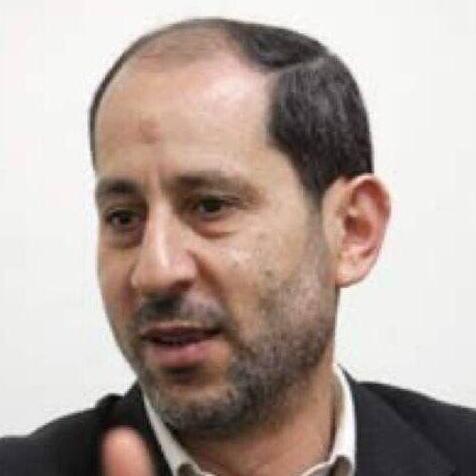The fate of Hezbollah's chief of operations Muhammad Haydar, who was the target of an Israeli bombing raid on Beirut's Al-Basta neighborhood on Saturday, remains unclear. according to some media reports, he was not in the area at the time of the strike.
The sector is nestled in the heart of Beirut, and renowned for its middle-class residents who established their homes there as early as the 19th century. With its rich tapestry of artists, painters, and cartoonists, it continues to be inhabited by their descendants. It is strategically located near the National Museum of Lebanon and government buildings.
The attack on Beirut
At the center of Al-Basta, in a once-stately eight-story building now reduced to rubble, lived "Abu Ali," the high-ranking Hezbollah figure. He was the mastermind orchestrating significant field operations.
Due to Haydar's longstanding and special relationship with slain Hezbollah chief Hassan Nasrallah, he was appointed to serve in the Lebanese Parliament from 2005 to 2009 to benefit from parliamentary immunity after his alleged involvement in the assassination of Prime Minister Rafic Hariri in 2005. Once the threat subsided, Haydar returned to operational roles within Hezbollah.
recent information suggested Haydar collaborated with the Iranian Quds Force overseeing attacks. Following the assassination of Hezbollah’s chief of staff Fuad Shukr last July, he was thought to be his successor and the head of Hezbollah's Special Operations Division. According to posts on social media, many Lebanese citizens, though anonymously, expressed joy at his possible elimination.
Naim Qassem, appointed to replace Nasrallah after serving as his deputy for many years, lacks combat experience. He has never held field positions, and like his predecessor, he remains in hiding. It is likely Israel is closely monitoring his movements, and any attempt at unusual maneuvers might lead to his demise. For now, the new secretary-general subtly endorses the "experiment" with peace initiatives, while Hezbollah's Jihad Department, which Haydar heads, continues attacks.
The case of Haydar, the "mastermind," is far more complex. According to foreign reports, as early as 2019, Israel attempted to eliminate him when two Air Force fighter jets dropped bombs on a building in the Dahieh district of Beirut. That attempt failed; others perished, but Haydar survived and strengthened his security perimeter.
Get the Ynetnews app on your smartphone: Google Play: https://bit.ly/4eJ37pE | Apple App Store: https://bit.ly/3ZL7iNv
His recent roles included commanding Hezbollah fighters in Syria, providing military advice to former secretary-general Nasrallah, and overseeing Hezbollah operations against Israel. According to available information, "Abu Ali" worked tirelessly around the clock.
All that remains of the eight-story building on Mamoun Street in the Al-Basta neighborhood are stones. Five bunker-busting bombs left little behind, and those reporting on the event in Lebanon can only marvel at how Israel once again knew precisely where to aim and when "Abu Ali" entered his apartment, seemingly too close to the time of the bombing to be able to escape.




